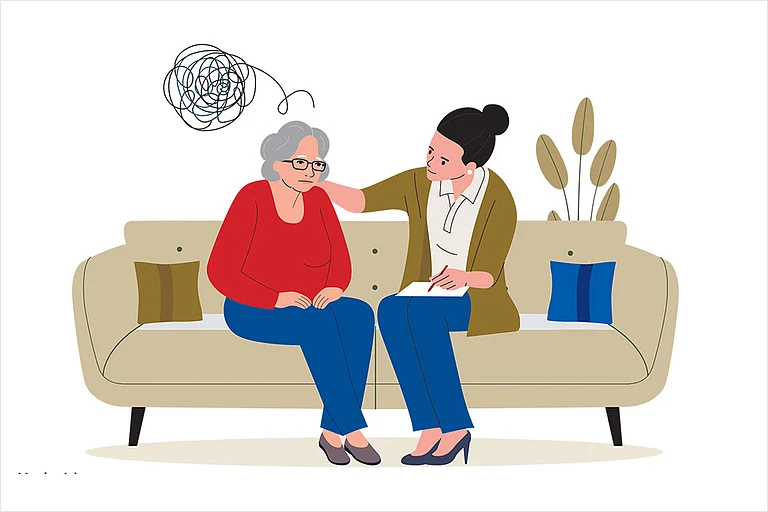One in six people around the world experiences loneliness. Loneliness is not a disease, but it can lead to serious health consequences. According to the recently released World Health Organisation (WHO) report ‘From Loneliness To Social Connection’, around 100 deaths per hour (more than 871,000 deaths annually) can be linked to loneliness. The report highlights that people of all ages are affected by the issue, especially, in the low- and middle-income countries. It estimates that one in three older adults and one in four adolescents experience loneliness. Also, people with disabilities, refugees and migrants, ethnic minorities, and LGBTQ+ individuals face higher discrimination leading to social isolation.
Loneliness Has A Serious Impact On Health: What Individuals, Societies And Countries Can Do—WHO Report
More than 871,000 deaths annually can be linked to loneliness. Social isolation can affect one’s mental and physical health severely. However, there are solutions to it through intervention at the individual, society, and national policy level, says the WHO report
Impact on health
According to the report, these issues may lead to heart disease, risk of stroke, cognitive decline, diabetes, and premature death. However, the healthcare burden can be reduced if people are supported to stay socially connected. Social connections can help beat the feeling of loneliness and isolation and it can have positive effects on physical health too. For instance, it can reduce inflammation, improve mental health, and prevent early death.
It emphasises that social connections are crucial but are often undermined. Loneliness can cause a loss of productivity. The report says that social bonds are good for staying healthier and resilient and to face inadvertent situations.
Social Connections
According to the report, there are five key areas to work on to address the issue. These include Policy, Research, Intervention, Improved measurement, and public engagement. The report underlines that loneliness is not an individual issue but a community and national issue that requires policy-level intervention.
The WHO defines health as “a state of complete physical, mental, and social well-being and not merely the absence or infirmity.” It explains that social health is integral to one's overall health, and neglecting social connections can be detrimental to physical and mental health. It stresses:
• Social disconnections are widespread across age groups and regions
• Its consequences are severe, which can affect mortality, and at a larger level, society and the economy
• There is a need to work towards it, and there are strategies available
Possible Solutions
• The report says that developing a national level policy, and exchanging knowledge among different sectors and countries can help in combating this issue.
• Building research capacity and setting up and funding research can be useful in finding solutions
• Further monitoring and measuring the data and developing a global index of social connection can help understand the gaps and work towards bridging them
• Developing guidance and scaling up solutions and support in the implementation of solutions
• Raising awareness through campaigns and building a movement can also be a possible tool to solve the underlying issue
According to the report, by strengthening social connections worldwide, resources will be free for a productive, and healthier future.


